
Prof. Dr. Darko Tanasković: Serbian and Russian Orthodoxy under attack from outside and inside
Let's be human. This covenantal message of the deceased patriarch Paul is the highest expression of Christian humanity, rather than humanism, because if we use the term humanism, we would have to clarify many things in the field of the history of ideas.
The call to "be human" seems somehow too simple and many were inclined to interpret it as an almost routine, repetitive message of an aged monk, without any real connection to the complexity of real life, and even to ignore it. And in fact, there is no more difficult and sublime task than that in times of general dehumanization and despiritualization, in which what differentiates and conflicts between people is emphasized to the point of absurdity, mastering the ability to recognize in those, by something different, the primordial man, neighbor, that is, the generic unity of the human species, Prof. Dr. Darko Tanasković, academician, orientalist, doyen of Serbian diplomacy.
His book "Religion in Society, Culture and Politics", published recently as the first in the newly founded publishing house "Duhovna reč" of the Archdiocese of Belgrade-Karlovica, was inspired by that "vow of the blessed memory of Patriarch Pavle", as prof. Tanasković explained at the promotion in the crypt of the Church of Saint Sava. Therefore, the first question for him was whether he could recognize how much as individuals in our society, consciously or unconsciously, we govern ourselves in accordance with that deeply humanistic message, to which he also says:
"In Serbia, but by no means only we in Serbia, I would say, generally do not govern in accordance with this universally valid covenant." For each other, we are primarily Orthodox, Catholics, Muslims, members of different nations, so-called. leftists and rightists, members of various ideological and political parties and movements, first-Serbians and second-Serbians, Zvezdas and Partisans... just not first the people, and then everything else, what would be the order, if it were luck, both Christian and natural, it would have to be, at why would it be pointless to dispute the reality and significance of historically, culturally and socially determined affiliations and differences. Only in cases of great accidents and deaths does solidarity manifest itself in us, which temporarily points to the fact that we are all still people in trouble. I fear the alienation and hatred that have settled in the hearts and souls of many Serbs.
The book has more than 700 pages, but, nevertheless, in this conversation, can you summarize your assessment of the position and importance of religion in Serbian society?
Our wise "people's teacher" Vladeta Jerotić often repeated that man, in addition to other characteristics, is also homo religiosus, that is, a being who needs to believe. I once asked him if it might not be more accurate to say homo credens in that most general sense. He agreed that he was. Namely, when talking and thinking about religion, in Christianity it is inseparable from taking an attitude towards the church, so I have that in mind when trying to answer your extremely complex and layered question. Namely, the Serbs are a people who, even when they are not aware of it, have a deep need to believe, and this need traditionally directs them towards Orthodox church religiosity, so that the Serbian Orthodox Church is certainly one of the most important national institutions of the Serbian people, in the foundations and in the transhistorical vertical of its identity self-awareness. This applies not only to those Serbs who declare themselves to be believers, but also to atheists and even secularist anti-theists, who define themselves in terms of identity through negation, through the rejection of religion and animosity towards the Serbian Orthodox Church. Without its existence, they would lose the support of their, typologically religious, belief in their own atheism. Therefore, religion in Serbia, viewed and lived positively or negatively, is an extremely important factor in social life and individual destinies.
And in politics? Or to turn the question around, how much does politics, in your opinion, influence the actions of the church fathers?
Politics, which for a long time, and not only in our country, is mainly not understood and is not led in the, conditionally speaking, Platonic sense of working for the common good, affects all areas and institutions of social life, and inevitably, to a certain extent, the Serbian Orthodox Church as well. the church and its hierarchy. The late Radovan Bigović resignedly stated once that today politics is the only metaphysics we are still capable of. According to Christ's words, his church is not of this world, but lives and acts in this world, so it is necessarily in constant coexistence and cooperation with its social and political environment, state and social institutions. Its believers are citizens, who do not stop being citizens when, after the religious ceremony, they leave the church, as the advocates of a wrong understanding of secularism would like it to be. The SPC suffered a lot during the dominance of communism and "scientific atheism" and was systematically marginalized. She seeks the optimal measure and model of her participation in social affairs from the abolition (which still does not mean complete liberation from) that systemic discrimination. In the very important, but also multiple sensitive sphere of relations between the state and the church, a continuous interaction is dynamically established, where mutual influences inevitably occur. Although the ambitions and expectations of both parties and of some individuals may occasionally be in conflict with the scope of the state, i.e. the church, I would not say that the balance of their relationship is disturbed, as some ideological and political groups tend to present. There is even mention of the "clericalization" of the Serbian social environment, which is so far from reality and possibility that it could be called notorious nonsense. Serbs can, temporarily and even more permanently, embrace various value-doubtful and harmful forms of behavior and attitudes towards the world, towards others, and even towards themselves, but they cannot become true clericalists as a community.
How much as individuals, again depending on whether we are believers of the Serbian Orthodox Church, believers of another church, or atheists, agnostics, etc., do we know about the way the Church operates? Do you think there is too much unjustified misunderstanding, or maybe the criticisms against her are justified and adequate?
There is, certainly, a lot of ignorance or wrong knowledge about the church and the church in general, and also about the Serbian Orthodox Church, its institutional nature, organization and mission. As a rule, the less one knows, the easier one dares to express apodictic judgments and harsh evaluations. But there is also something, at least in my opinion, as a general weakness, a "defect" in attitude towards the church, and not only the church, but everything transcendent in modern societies, including the Serbian one. It is a fundamental misunderstanding and underestimation of the importance of the spiritual dimension of life for people. A political culture marked and bounded by that limitation is unable to find an appropriate relationship between the material and the spiritual, excluding the spiritual from its view. She would sometimes be happy to instrumentalize religion/Church and its moral authority, but never honestly place spirituality in its rightful place. Stalin's famous question - How many divisions does the pope have? - has not lost its topicality. On the contrary! Only, that Stalinist logic today inspired the anti-spiritual, and therefore also the anti-church planetary action of the supposedly liberal and free-thinking, but actually totalitarian globalization front. There is no doubt that, to put it simply, the behavior of clergy can be the subject of public critical, reasoned analysis and that the Church is not and should not be untouchable in this respect, but in the vast majority of cases it is not about such a responsible and constructive attitude, but about attacks which aim to destroy the reputation of the SPC in society, because it is still unbearably high for some forces. After all, in his excellent study "Hybrid war against the Serbian Orthodox Church", Slobodan Stojićević has documented and clearly shown that Orthodoxy, especially Russian and Serbian, is today under a concentrated attack from outside and inside for unequivocal geopolitical reasons. It is neither a fabrication nor a conspiracy theory, but a confirmed truth.
Often the blade of criticism is directed at the head of the Serbian Orthodox Church. Currently, in certain circles, the top of the Church is calling for a statement on the opening of a lithium mine near Loznica, while in those circles the bishops and priests of the Serbian Orthodox Church who have publicly opposed the project are being applauded. It was similar in the case of some other important topics, such as KiM, vaccines, gender-sensitive language, Pride Parade...
In accordance with what I said in the answer to your previous question, it logically follows that directing criticism at Patriarch Porfirio is an expression of maximally increasing pressure on the SPC at a time when, in connection with the undoubtedly important environmental issue of lithium exploitation in our country, media and political induced hitherto unprecedented division and polarization within Serbian society, which is gaining very dangerous proportions. It is indicative, as an expression of eyeless hypocrisy and cynicism, that the patriarchs, in the name of the moral values of Christianity and pastoral responsibility, are brazenly asked to make a statement by the same ones who, on every occasion when the Church speaks publicly about a social issue, make a fuss, supposedly protecting the secular order from clerical "interference". The Church is neither a political party nor a non-governmental organization and it, including the patriarch, acts in accordance with its spiritual mission, assessing, in the function of fulfilling it, when and in what way it is appropriate to declare the Gospel on worldly, worldly issues. At the same time, her parliamentary call is to contribute to unity, and not to deepening divisions in the Serbian people. Why should she take sides in relation to a recently opened controversial and inappropriately dramatized phenomenon, which has yet to be competently discussed at the professional and political level and, if possible, lead a dialogue between advocates of opposing views. If such a dialogue is even possible. And the fact that some bishops and priests are speaking out in their own name is proof that there is more democracy and freedom of speech in the church organization than in some alleged champions of these values from the bloody political arena.
Patriarch Porphyry, speaking at the promotion of your book, repeated the words of one of the old archbishops that in today's time, which is characterized not by secularism but by apostasy (defection from religion or the church), it is very important that people who have a reputation in public life clearly and unequivocally for they say themselves and testify that they are Christians. Why?
Well, from the patriarch's perspective, that is expected and understandable. It has become, for a whole series of reasons and processes that have been going on for a long time, almost shameful to publicly manifest Christian beliefs, so that one can get the impression that the people who represent them are in a distinct minority, which is not true. After all, the Lithuanian movement in Montenegro has magnificently proved it in an environment where an Axis regime believed that it could completely eradicate everything spiritual and sacred from its "subjects".
You often point out the difference between the terms ecumenism and ecumenism, although quick online dictionaries will generally tell you that they are the same?
The difference is important, essential. Namely, ecumenism is an attribute of the original, unique Church of Christ, while ecumenism is a movement to overcome the schism of 1054 and restore such unity. Today, ecumenism is predominantly linked to the effort of the Roman Catholic Church to gather all Christian confessions, churches and denominations under the jurisdiction of the Pope, which is by no means the right and acceptable way to establish full "synodalism". The Roman bishop could be "first in honor", but by no means "first in power". There is always a lively theological debate about papal primacy. However, due to the existence of the problem of ecumenism, it is not justified to oppose what points to deep ecumenism, as the original nature of Christianity.
When will it be time for a pope to visit Serbia? There are opinions in part of the public that the current head of the Catholic Church could be the right man for that, i.e. that he is someone who deserves it.
With the risk of being accused of "papism" and similar sins, with full respect for the arguments of those who oppose it in principle, I am convinced that the visit of Pope Francis to Serbia, provided it is well-prepared and welcoming, would bring us more benefits than harm, especially on the international level. Considering the additional general tension between the (post)Christian West and the Orthodox East, due to the war in Ukraine, with all the consequences it brought, I do not believe that it is currently possible to expect any developments regarding the visit of the head of the Catholic Church to Serbia. Everything I said is about this Pope and his eventual arrival...
Given that you know the Islamic world well, what does the increased activity of the Wahhabi movement in our area seem to tell you? Is it related to the war in Gaza?
There is, of course. Extremism everywhere and always feeds on other extremism. Recent incidents warn of the potential of (apparently) "sleeping" terrorist cells and individuals in some parts of Serbia and Bosnia and Herzegovina, but I am inclined to believe that these risks can be neutralized and eliminated by adequate monitoring and action of our security services, that is, that , for now, do not represent an alarming phenomenon in a broader sense. I have always maintained that the actions of some "moderate", objectively anti-Serb Muslim political entities in the coordinates of the system are more dangerous than radicalized and mostly isolated Islamist groups in the long run. It is probably not "politically correct" to say that, but it is morally incorrect to remain silent for supposedly "higher order" reasons. By the way, as we can see, extremists also network across borders and support themselves locally.
We currently have two hot spots of war, in Eastern Europe and in the Middle East. As an experienced diplomat, how do you see the development of the situation? Do you also think that we are witnessing a third world war?
Pope Francis, whom we mentioned, estimated a year ago that the third world war is being waged in the world "on a piecemeal basis". Looks like he was right. I am certainly not sufficiently informed, nor competent, and of course not smart and intuitive, to dare to answer this fateful question of yours with greater confidence. I think that there will not be a general war conflagration on a world scale, because there are not enough real actors for such a conflict, i.e. millions of militarized citizens, especially in the West, who would be ready to put on uniforms and go to victory or death in the name of nebulous, objectively distant and mystified goals. Because, regardless of the unexpected, terrifying rise of the technological dimension of war, there can hardly be a world war without large armies on the ground. But who knows... Major, risky incidents can happen in any case, and at any moment.
Source:
Politika.rs
PHOTOS
RELATED ARTICLES
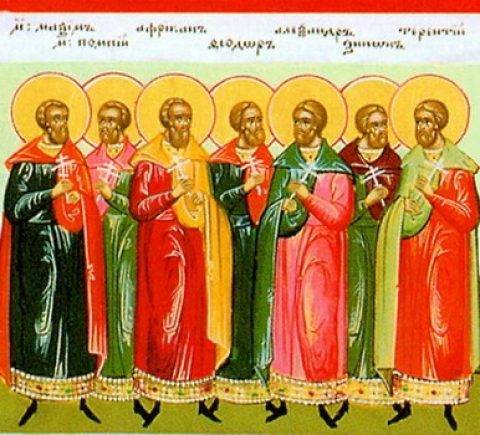
Calendar for April 23 The Holy Martyrs Terentius, Africanus, Maximus, Pompey and Others
They suffered for Christ and were crowned with a crown of glory during the...
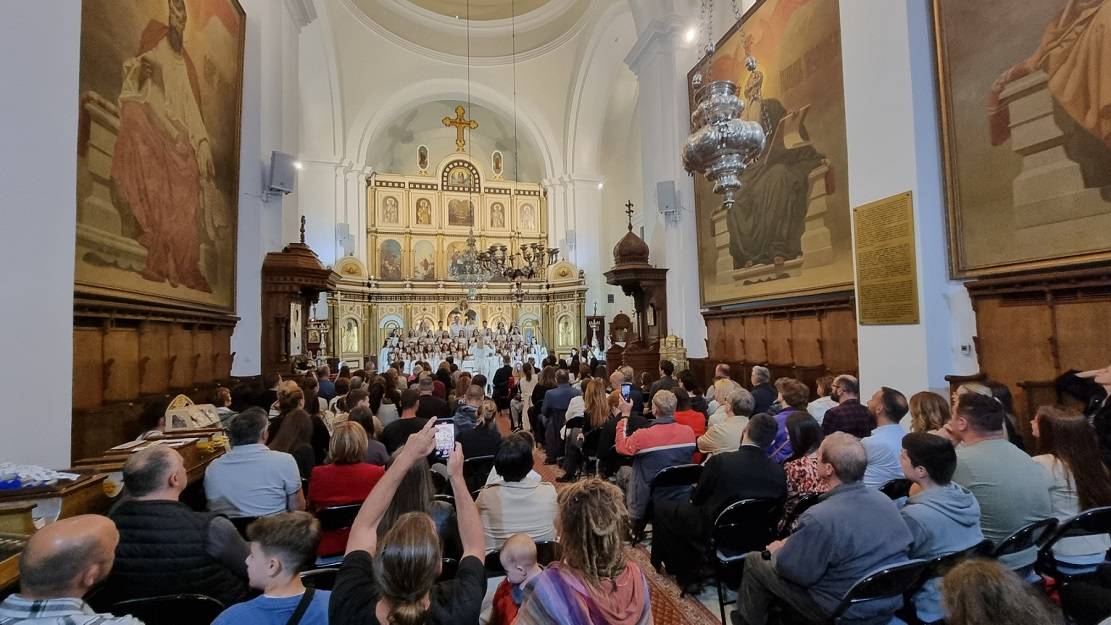
EASTER CONCERT OF THE CHILDREN'S, YOUTH AND SENIOR CHOIR OF THE SPD JEDINSTVO HELD
In the Church of St. Nicholas in Kotor, the Easter concert and another, to say...
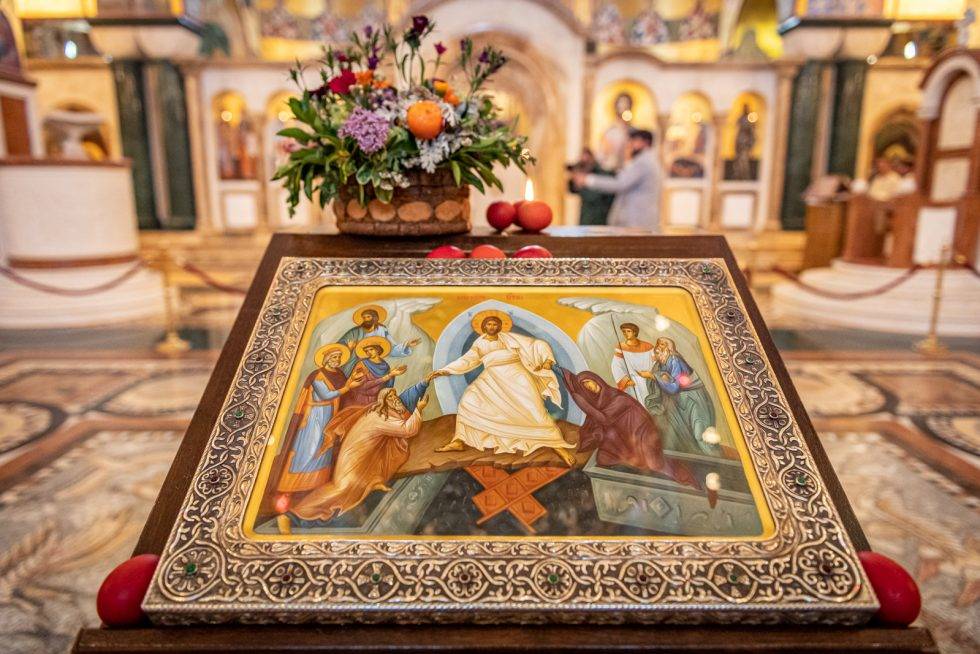
Easter Tuesday
Maundy Tuesday, Easter Tuesday (Greek: Τρίτη...


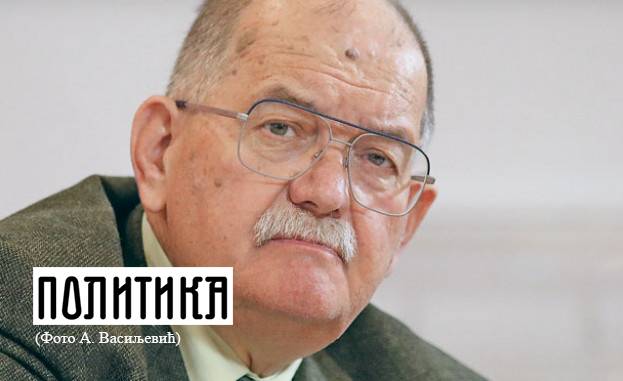

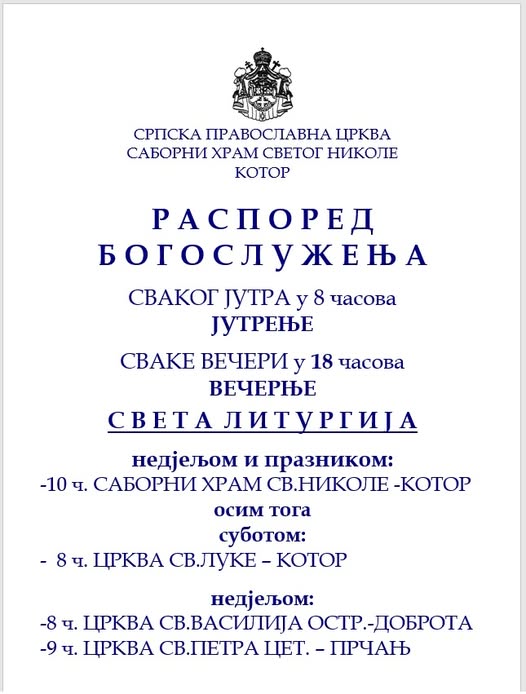
.png)